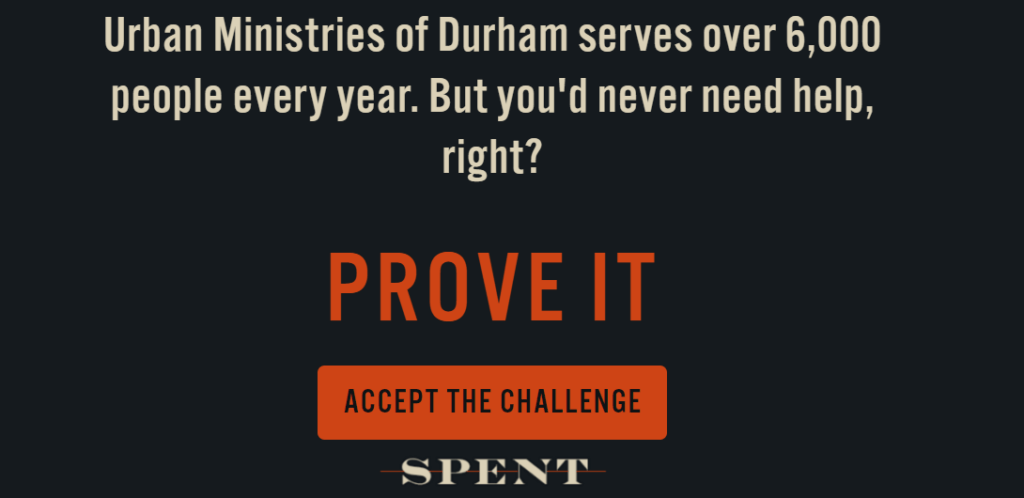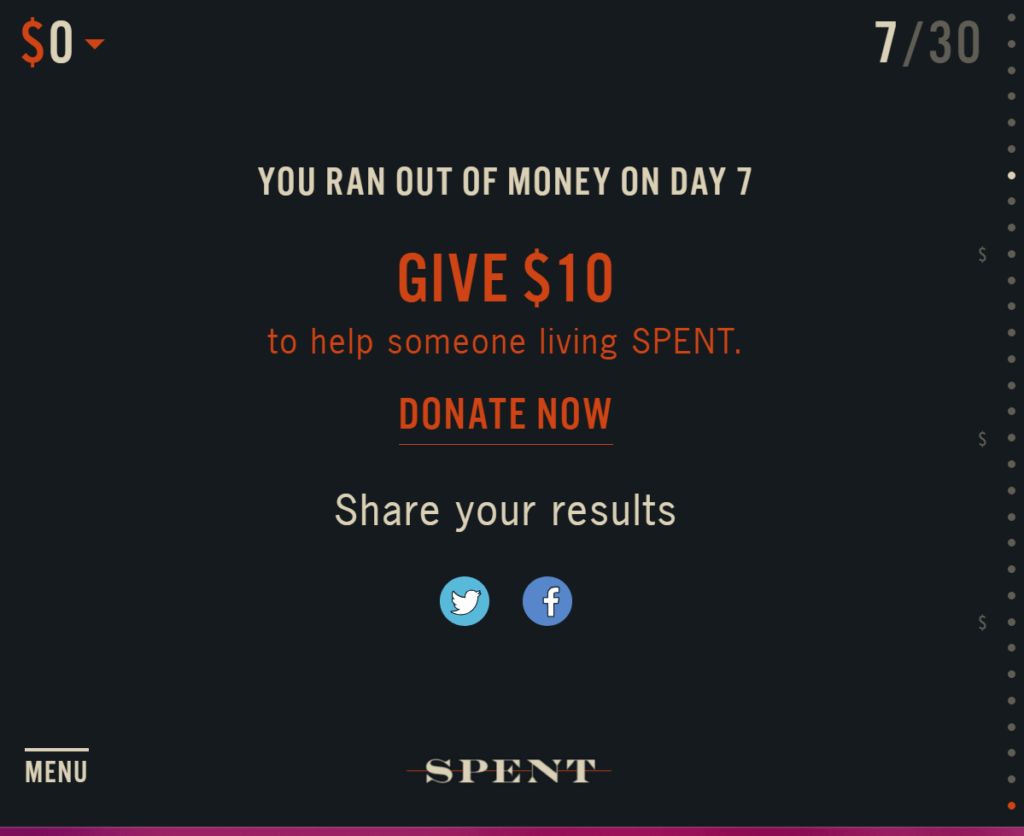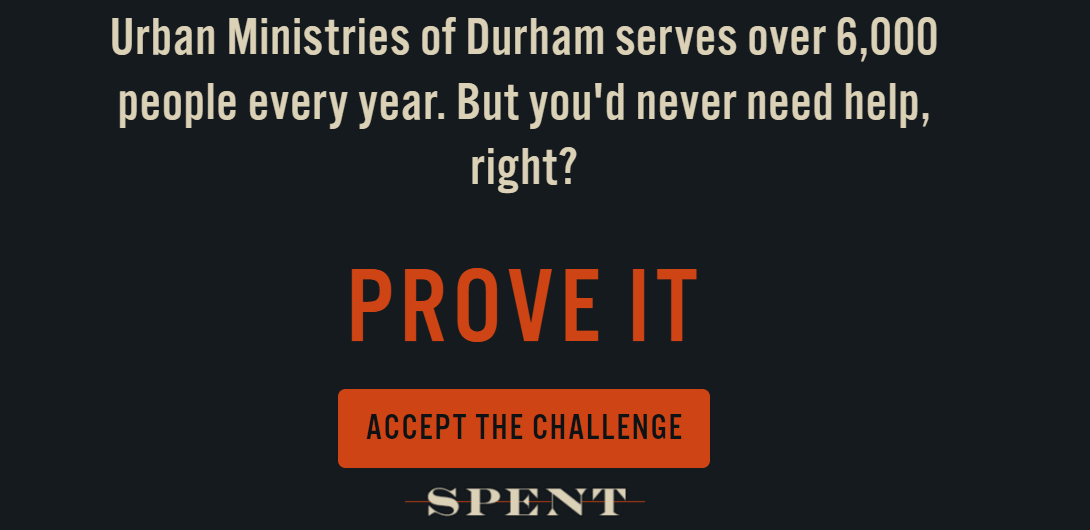Spent is a web-browser based game about poverty and homelessness created by McKinney and published by the Urban Ministries of Durham in 2011. It is meant to dispel myths that people who have never experienced homelessness or poverty believe in, such as that homeless people are people who refuse to work, do not want to help themselves and/or can easily become housed.

The user plays a simulation where the mechanics are they are an American with only $1000 and need to survive the month without going broke. The main actions available is being presented with options such as minimum wage employment opportunities and whether they will pay their bills or what kind of insurance plan. After a few choices, the user learns that regardless of what they choose, they will never be able to survive the month without becoming homeless. The user begins to learn how the simulated (and our actual) society does not ensure access to the basic requirements of life, including a livable minimum wage, affordable housing near employment, walkable cities, or healthcare.
A dynamic emerges from players attempting to choose the “right” options, such as having health insurance, being employed, paying car registration, etc., will cause the player to experience despair, franticness, and even hopelessness. The “right” choices will make you go broke sooner because the cost of living is much higher than what your income. After repeated play, the player may adjust their approach and choose to make some “wrong” choices to survive longer. An example would be not paying health insurance in order to afford rent. Yet this only delays the inevitable because if you become ill without insurance, you immediately become homeless as you are too broke to afford care and too sick to be able to work. The unwinnable nature of the game forces the user to reckon with likelihood and reality that anyone may become homeless, which is the goal of Spent.
After playing Spent, the player will ideally achieve all of its outcomes by leaving informed and with a different attitude towards homelessness, gain the ability to emphasize with the unhoused, and a call to action to help by providing material support to unhoused people directly or organizations that support them.




